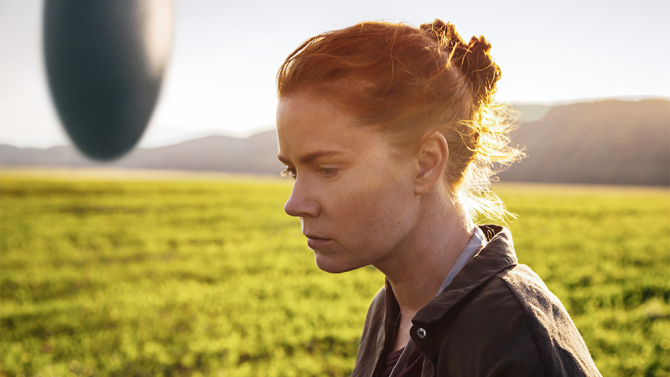
There’s an Indian movie named ‘Om Shanti Om’ where one particular dialogue by the protagonist became immensely popular at its time of release (and holds its aura even to this date). It says (as translated from Hindi to English):
“Everything should be fine in our lives at the end just like the happy endings of our movies, and if it doesn’t happen then it’s not the conclusion! The film is still incomplete!”
This particular line is not confined to only one film or one type of audience. Upon interacting with numerous people from all corners of the world one can understand how important endings are in determining someone’s likeness for a film. Though unlike this line, it’s not always about happy endings but about endings that fit well into the storyline.
For instance, no matter how bad we feel for Jack’s death in Titanic, we all would agree upon the fact that if he had survived at the end, the film’s emotional impact would have been reduced drastically. Intrinsically, most of the generic audiences judge a movie largely based upon its ending. So, if the premise isn’t very captivating but the final act is strong or moving or fascinating in nature, people will happen to like that film and retain a positive view of it.
We’ll, however, look in a different way for this list. We’ll cover those movies which were excellent almost throughout their runtime but disappointed us in their final sequences. Having said that, it’s important to understand that by no means are these movies bad. They are of course good or even great notwithstanding how unimpressive their conclusions were. Also, we’re issuing a SPOILER ALERT for we’ll be divulging certain plot-points of these films.
10. Baby Driver (2017)
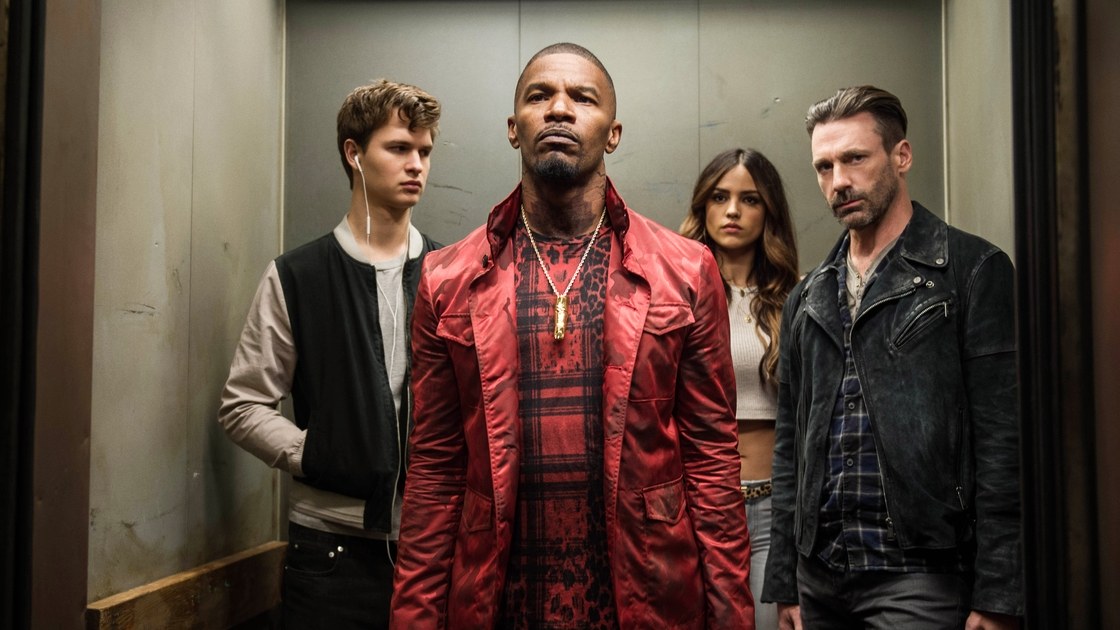
When most Hollywood action releases are outright deplorable or clichéd in their filmmaking approach, a gem like Baby Driver isn’t difficult to spot. It’s sleek, well performed and also smartly executed. What scores for the film is its simple plot which doesn’t wander unnecessarily around different characters and hence, entertains throughout its premise.
But the vexing thing about its climax is how Doc spares Baby and Deborah after he (Baby) botches up the heist, by citing that ‘he (Doc) too once loved someone’. If one remembers, at a certain point in time in the film, Doc threatens our protagonist to join his gang even after the latter has paid off his debt or else he’ll kill Deborah and Joseph.
That scene in the movie established his cold-bloodedness and the fact that his profit mattered to him more than any human relations. Having set that, any sane mind would have expected him to charge Baby for incurring him all the losses but the inappropriate turnaround of the mysterious kingpin was too mawkish and ridiculous for the film’s premise.
Irrespective of this glitch, Baby Driver does redeem itself with its final thrilling showdown between its protagonist and Buddy, but that can’t wipe off the blemish of an underwhelming finale thanks to the schmaltzy face turn of a potentially wasted anti-hero.
9. Falling Down (1993)
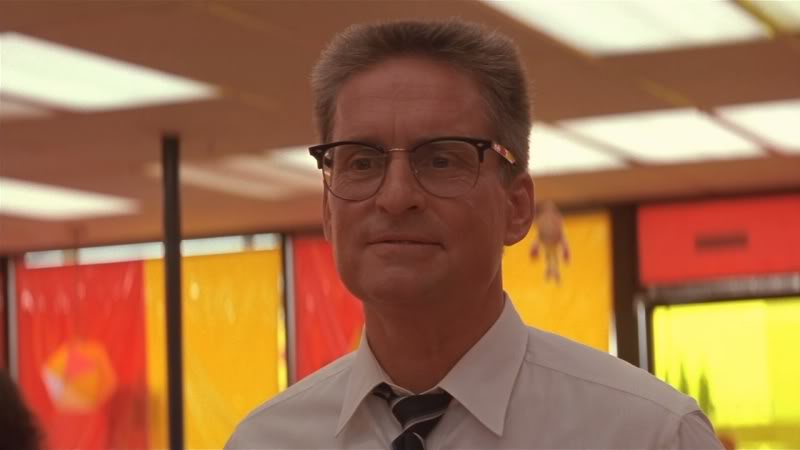
If you ever want to know what inner implosions can make a person do, then this Joel Schumacher directorial should be on the top of your watchlist. Falling Down follows a psychopathic man named Bill who goes on a rampage in order to meet his daughter for her birthday while making sardonic observations on daily life.
A strange premise with an equally uncanny protagonist, this movie is gripping, fascinating and at times even relatable, making it difficult for someone to not sympathise with Bill while still understanding the repercussions of his actions.
The film builds up excellently throughout its run only to create an over-commercialised ending. We didn’t want to see Prendergast sweet-talk Bill in order to distract him from using his gun and the reason is simple. A few seconds ago, the latter had fired some shots to scare people away and soon here’s a man who is munching popcorns and talking pleasantly with him about life, relationships and shit.
With the kind of intellect Bill was showcased to have, he would have effortlessly sensed that the man here is a cop and would have acted accordingly. But we are provided with a typical Hollywoodish climatic sequence that was probably felt to be fit in order to kill off one of the characters in the discussion. Was it possible to have a better ending instead of this silly contrived one? Of course, and that only adds to our pain.
8. In Your Eyes (2014)
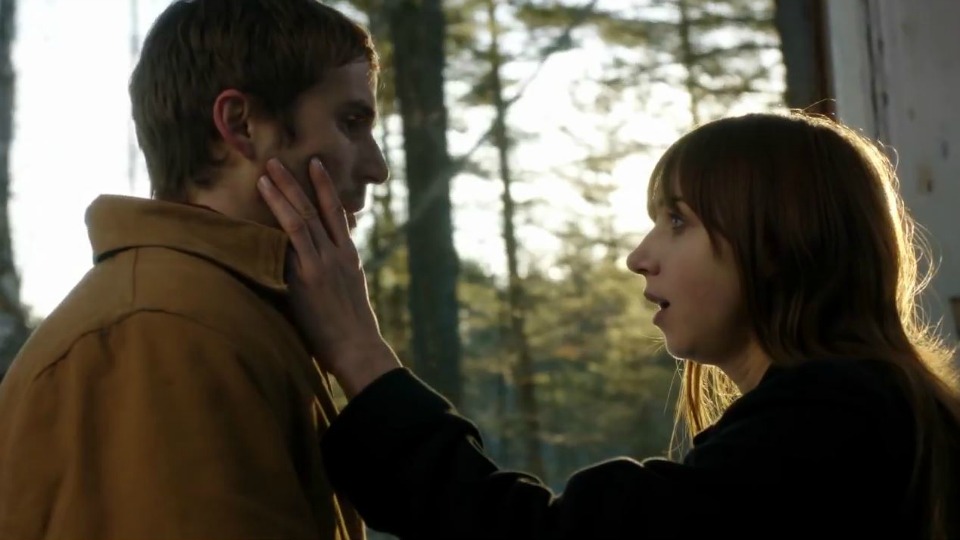
Nothing less than a fairy tale, this paranormal romance drama follows two strangers Dylan and Rebecca, who happen to be able to sense each other’s feelings and communicate as well, despite living on the opposite sides of the country. In Your Eyes is delightful, endearing and guarantees the necessary feels that one expects from romantic movies. Its highlight is its leads Zoe Kazan and Michael-Stahl David who despite not sharing the screen for almost the entire runtime (except at the end), share a beautiful and delectable chemistry.
No doubt, realism was never meant to be a feature of this flick but plausibility wasn’t a difficult demand either. It would have made sense if both of them understood the impossibility of their future together and have moved on with their lives. That would have been heart-breaking but the audience would have understood and appreciated it nevertheless.
Instead, we were given a stylish ending with Dylan flying all the way to New Hampshire and reuniting with his love and both fleeing in a train to Canada. If we can forgive Rebecca’s questionable escape from the mental institution, how can we ignore the simple fact that in order to go to Canada, they’d require passports? One can digest their paranormal romance but apart from that the world is real, logical and scientific and one has to adhere to its rules and regulations.
Moreover, our hero who is new to the city knows exactly where and when the train is arriving! Wow! How did he plan all of this in such a stipulated time! Irrespective of our criticism of the climax, we do acknowledge the fact that the cheesy ending can be liked by people who have a thing for romances and romantic movies. The rest depends on everyone’s individual scrutiny of the film.
7. Phone Booth (2002)
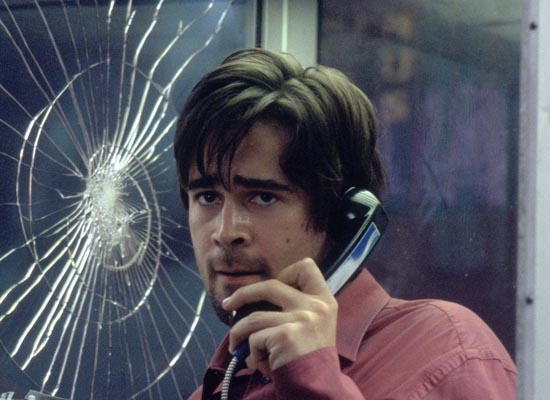
The second directorial of Joel Schumacher to feature in this list, Phone Booth is sharp and concisely wrapped in 81 minutes where it ensures that the viewers are on the edge of their seats throughout its runtime. Adding to the thrill is Collin Farrell’s performances who enforces you to empathise with his situation and feel the anxiety in an exact manner his character Stu feels.
In the climax when Capt. Ed informs Stu that they have found the sniper and will nab him soon, our idiot protagonist brags to his enigmatic perpetrator that ‘he (the sniper) will be caught before long because the police know where he is’. That was the mother of all facepalms! Why on earth or even in hell, would someone act so gullibly! If writer Larry Cohen wanted the sniper to escape, couldn’t he have devised a smarter way?
Moreover, how could the sniper just walk up to the ambulance where Stu was rested (and sedated) and tell him about how he escaped and why he did whatever he did? Weren’t the officials there to prohibit him from getting close to Stu? What’s wrong with Hollywood’s sense of logic and reasoning!
6. No Country For Old Men (2007)
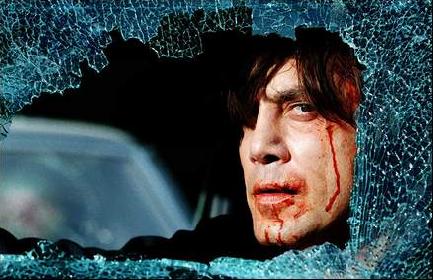
Artistically directed, well scripted, technically strong and greatly performed (especially by Javier Bardem), this neo-western is not only the best film in this list but is also one of the best films of modern times. It bases upon a very simple premise where a person is chased by a hitman for acquiring his money. Gritty and gripping in nature, No Country For Old Men is an exemplary example of an ordinary story being portrayed in an extraordinary fashion.
The film runs perfectly and seems to close down aptly with the hitman limping his way out and never being caught. But later we are introduced to a drawing/dining room scene where now retired Sheriff Bell narrates two of his dreams to his wife and then the film concludes. Both the dreams of Bell have their own philosophical undertones but the scene as a whole created no strong impact in the minds of the viewers who were just left baffled by the bland and seemingly hollow ending which also seemed a rather unnecessary addition to the plot.
If doing away with the dreams was something that Coen brothers didn’t want to bank upon, they could have simply incorporated it in form of a narration as Chigurh walked into oblivion. Such an ending would have been strong and sublime, but then who are we to question or suggest to Coen brothers?